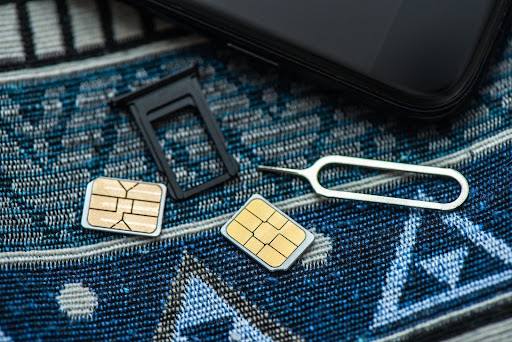
As understanding of the weaknesses linked to traditional SIM cards increases, eSIM technology is steadily being acknowledged as a safer option. A GSMA Intelligence report predicts that by 2025, 2.4 billion smartphones globally will feature eSIM capabilities. This rise is largely fueled by the enhanced security aspects of eSIMs, which, unlike traditional SIM cards, are integrated directly into devices. This design makes eSIMs considerably harder to extract or alter, thereby significantly lowering the threat of SIM swap fraud.
Moreover, eSIMs simplify the remote activation process and can reduce costs, especially in competitive markets like the US and UK, where prices are becoming increasingly attractive. For international travelers, eSIMs are a cost-effective choice, as almost any international eSIM store offers some of the most affordable rates, making them a preferred option for frequent travelers.
For comparison, the price of a SIM card on T-Mobile at John F. Kennedy International Airport in New York is $40, while an eSIM from TooSim costs $19.38 for 10 GB over 30 days.
Financial Losses
A major impact of SIM card fraud is the risk of substantial monetary damage. When a scammer takes over a victim’s phone number, they can infiltrate sensitive financial data, including bank accounts and credit cards. For example, in Toronto’s Project Disrupt, deceptive actions led to losses exceeding one million dollars. By utilizing false identities, scammers convinced telecom providers to swap SIM cards, granting them access to the victims’ phone communications, including critical banking information.
Data Security Threats
Beyond financial losses, SIM swap fraud presents a significant threat to both personal and corporate data security. Criminals can exploit access to a victim’s phone to reset passwords for email, social media, and other essential accounts. This may result in additional data breaches, extortion, and other cybercrimes. For companies, the breach of corporate data can disrupt operations, harm reputations, and result in legal ramifications.
How eSIM Technology Mitigates SIM Card Fraud
The built-in architecture of eSIM technology provides significant defense against the dangers linked to SIM swap fraud. Because eSIMs are integrated into the device and cannot be easily removed, they are far more difficult for criminals to replicate or alter. This greatly reduces the chances of successful SIM swap attempts and makes SMS interception, a common tactic used in fraud, much less likely.
Advantages of eSIM Over Traditional SIM Cards
In addition to improved security, eSIMs provide various other advantages. These include user-friendly setup, remote activation, and the removal of the need for physical SIM slots, enabling sleeker and more compact device designs. Consequently, eSIMs are not only a safer option but also a more convenient choice for modern mobile users.
Conclusion
The impact of SIM swap fraud is serious, leading to financial losses and data breaches that affect both individuals and organizations.
As the threat of SIM card fraud continues to rise, more users are opting for eSIM technology due to its enhanced security and financial advantages. As eSIM adoption expands, it is likely to become the norm, providing a safer and more efficient alternative to conventional SIM cards.
FAQ
What is SIM swap fraud, and how does it work?
SIM swap fraud happens when a scammer persuades your mobile provider to move your phone number to a SIM card they control. This enables them to intercept your calls and messages, potentially giving them unauthorized access to your accounts.
How can SIM swap fraud lead to financial losses?
After gaining control of your phone number, fraudsters can intercept SMS-based authentication codes, allowing them to access your financial accounts and conduct unauthorized transactions, which can result in substantial financial losses. For example, in a 2021 New York case, a fraudster used this method to steal over $20 million.
How can users protect themselves from SIM swap fraud?
To safeguard against SIM swap fraud, users should establish a unique PIN for their mobile accounts, use app-based or hardware tokens for two-factor authentication, and consistently monitor account activity for any signs of unusual behavior.
How does eSIM technology help reduce the risks of SIM card fraud?
eSIMs are integrated directly into devices and aren’t physically removable, making them much harder to duplicate or transfer without proper authorization. This extra layer of protection greatly lowers the likelihood of SIM swap fraud.
Interesting Related Article: “Why You Should Use an eSIM on Your Next Trip“







